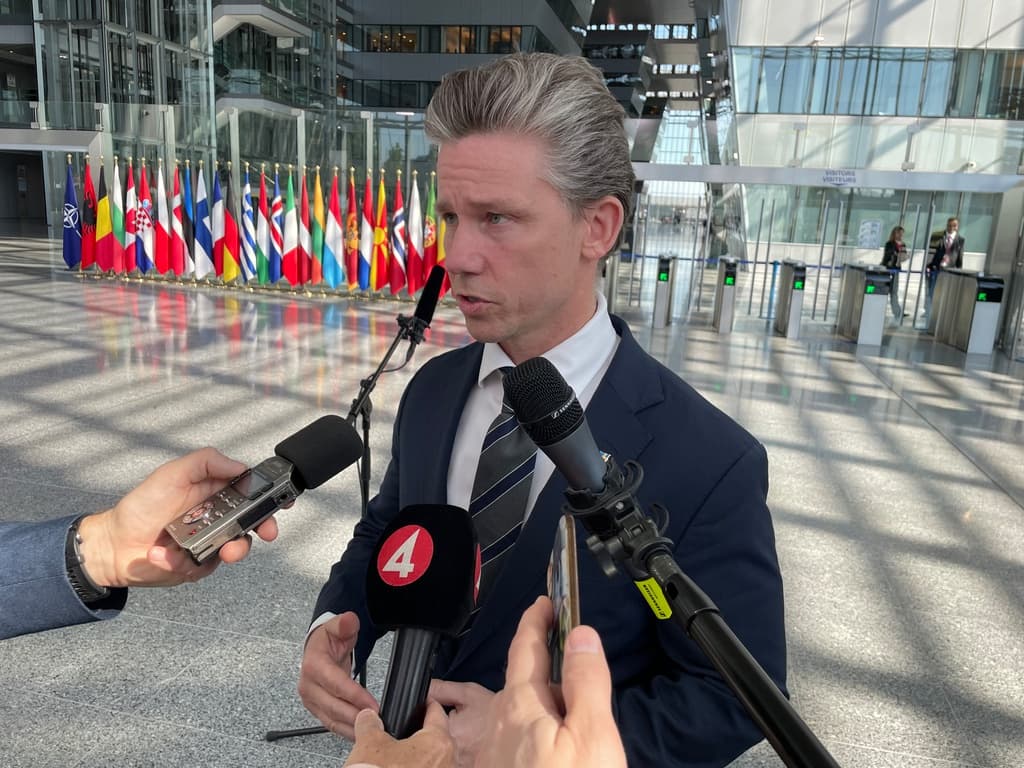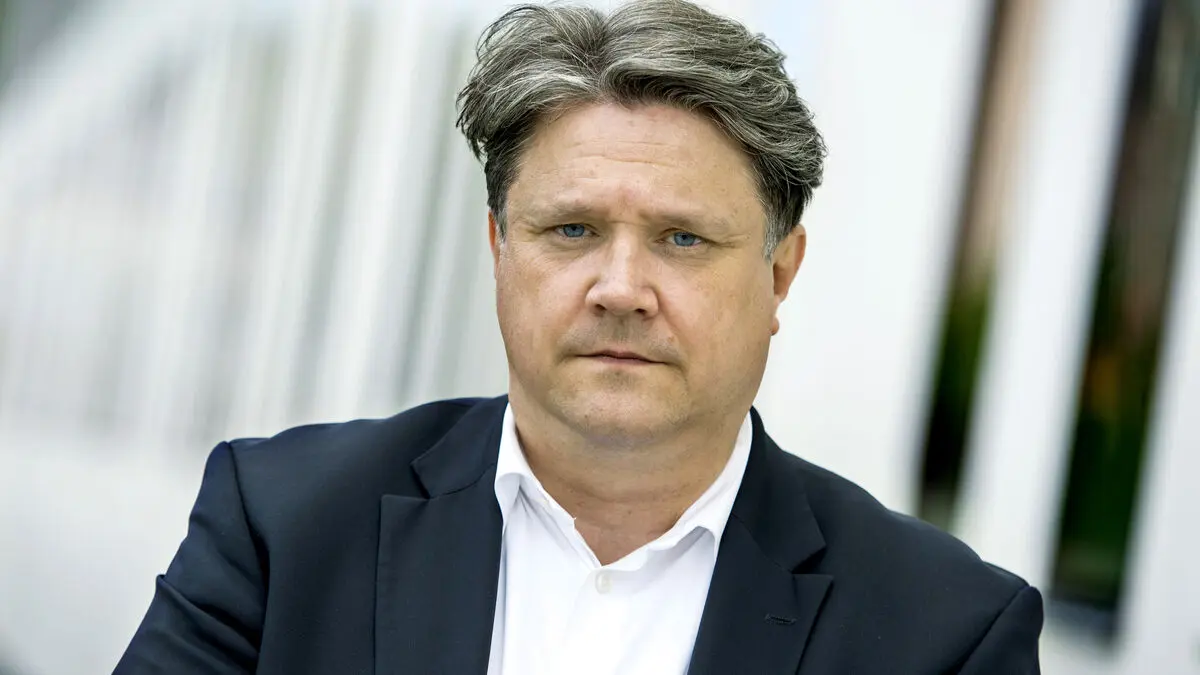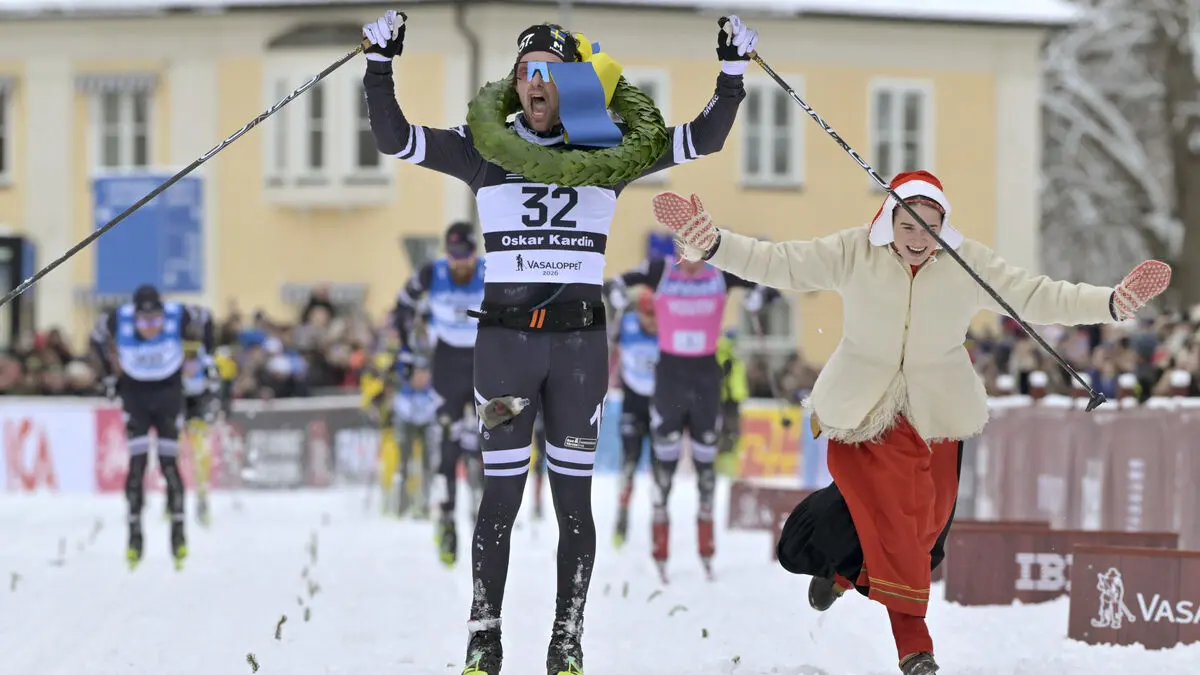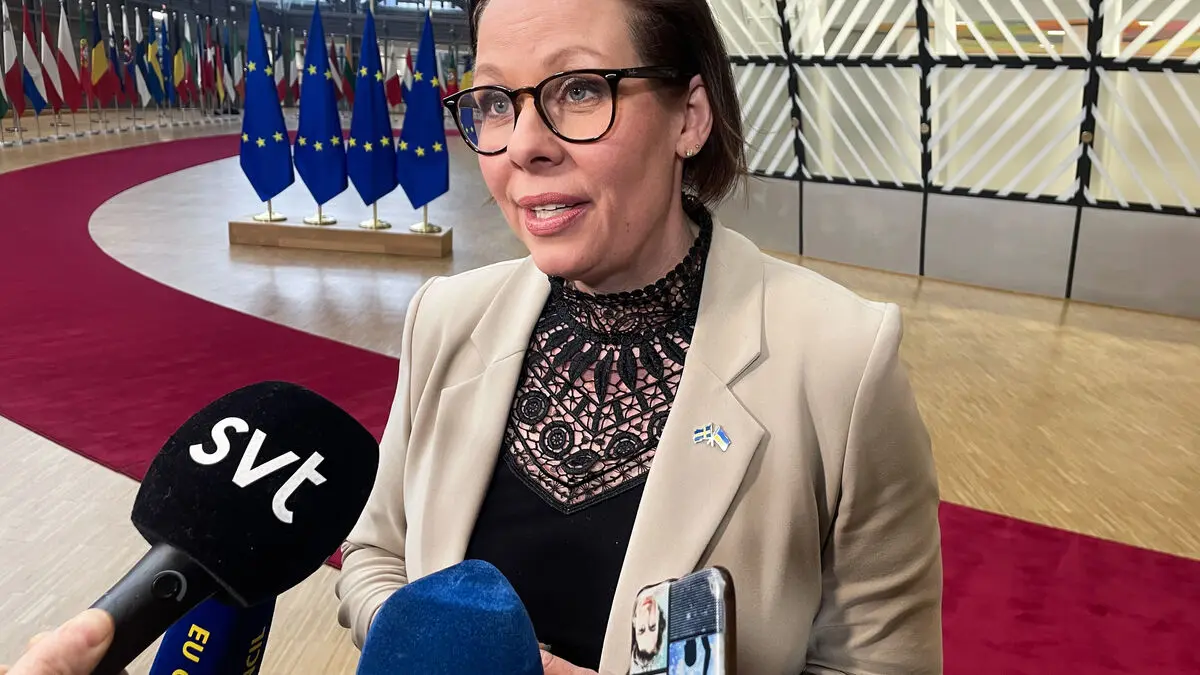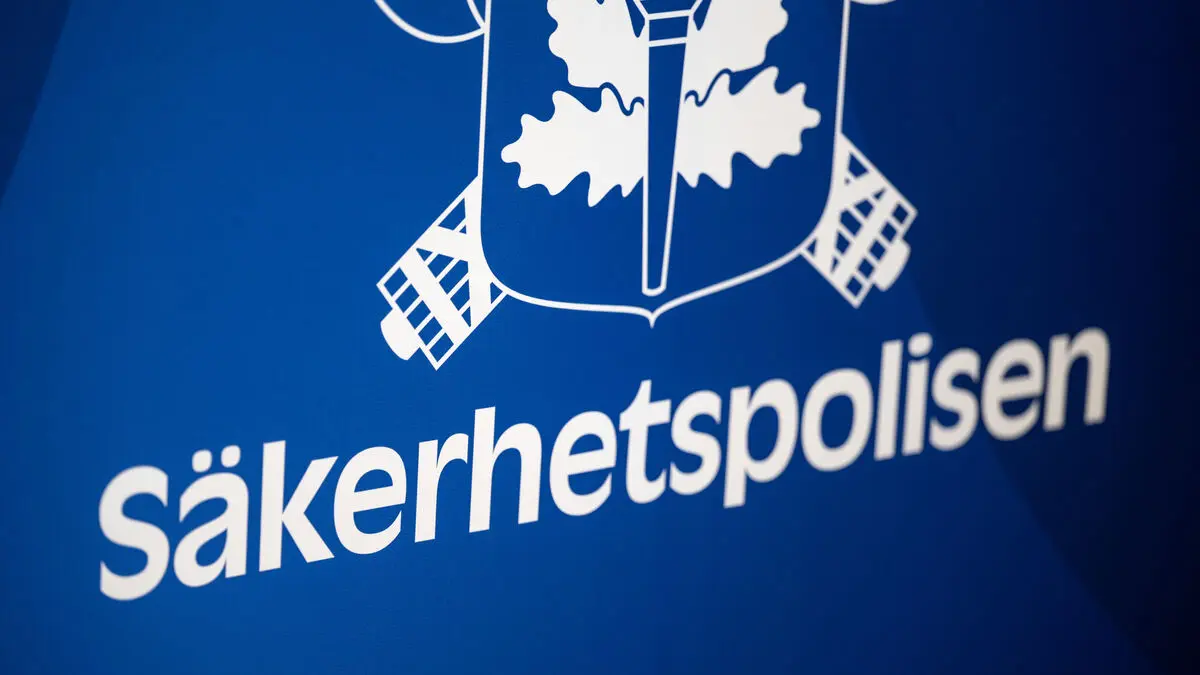The NATO countries are getting closer to long-term support for Ukraine and more NATO control over the coordination.
The fact that Hungary is exempt from participating raises concerns about unity – which are, however, dismissed in Brussels.
The NATO defence ministers' meeting in Brussels is another step towards agreeing on Secretary-General Jens Stoltenberg's proposal for long-term economic commitments to Ukraine and greater NATO control over the coordination of military support, currently handled by the so-called Ramstein group.
Almost everyone supports the intention behind Stoltenberg's proposal that NATO must take greater responsibility for Ukraine's support, but in the end, there will certainly be smaller details to discuss, notes Defence Minister Pål Jonson (The Moderate Party) at a press conference during a meeting break.
"Pragmatic reasons"
However, Hungary is exempt from participating. The country had long blocked the proposals, but dropped its opposition on Wednesday after Stoltenberg promised that it could opt out.
Neither Stoltenberg nor Jonson sees any danger in letting Hungary do as it pleases. At this stage, it has been more important to get the support for Ukraine than to achieve total unity.
Historically, there have been differing opinions among the allies in southern Europe, and we have found pragmatic ways to move forward – and we think it is necessary in light of the fact that it is crucial to have long-term, strong, and stable support for Ukraine, says Jonson in Brussels.
Poor English?
Besides Stoltenberg's proposal, countermeasures against Russian influence operations in the form of sabotage and disinformation are also being discussed.
On the support side, much revolves around the F-16 fighter jets that some NATO countries hope to deliver in the short term. Stoltenberg refuses to publicly discuss any dates.
One of the difficulties is the Ukrainian pilots' poor English skills.
If you're going to operate a fourth-generation fighter jet, it's difficult to do so without an English background. It's one of the things that have been pointed out as to why it has taken longer than hoped for when it comes to introducing the F-16, explains Pål Jonson.
NATO's Secretary-General Jens Stoltenberg wants member states to make a joint commitment to long-term economic support to enable Ukraine to build up its military. Figures of around 40 billion euros per year have been mentioned.
Stoltenberg also wants NATO to take over parts of the Ramstein group's coordination of military aid to Ukraine. So far, however, it's only about NATO taking over about a quarter of the tasks.
Hungary has been allowed to opt out of the support, in exchange for a promise not to block other countries from making decisions.

